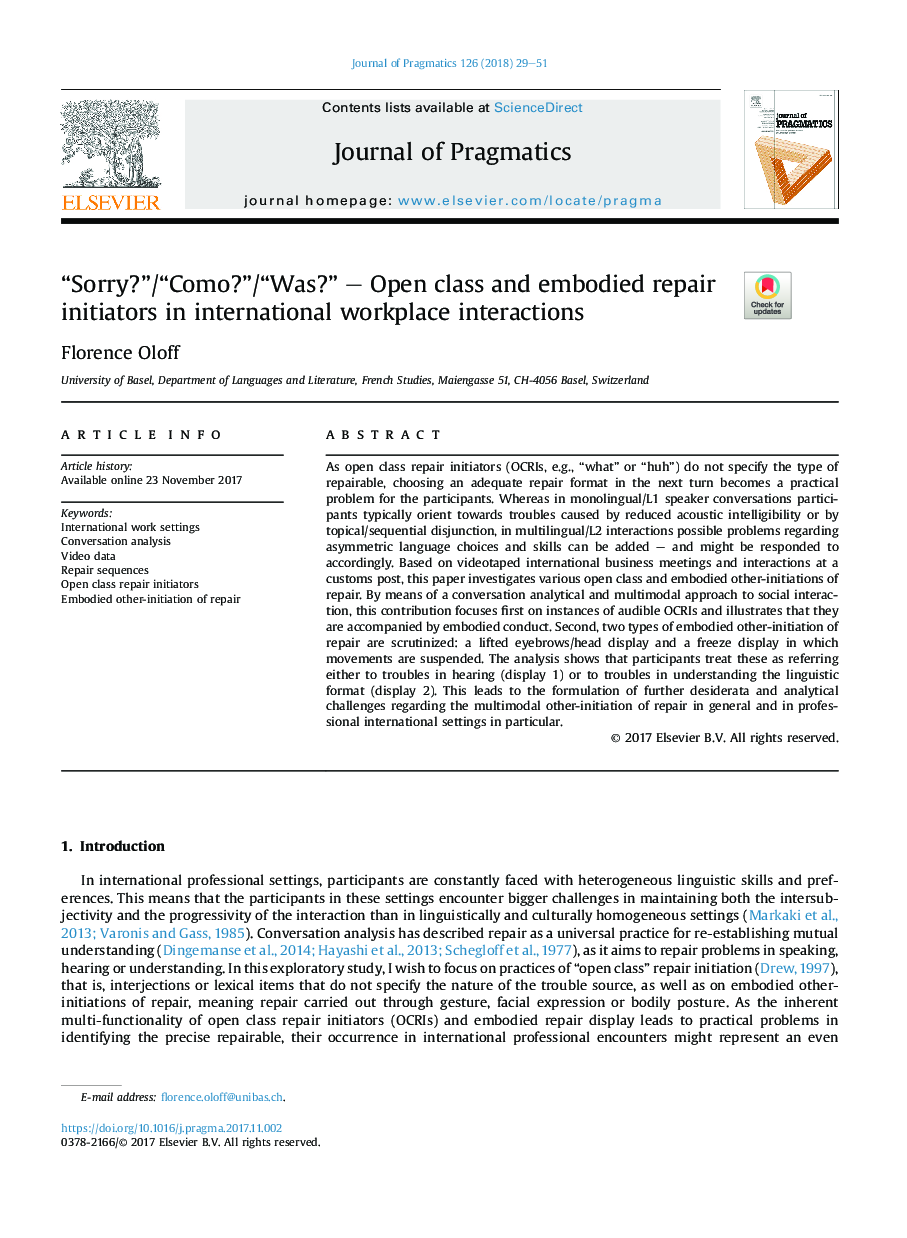| Article ID | Journal | Published Year | Pages | File Type |
|---|---|---|---|---|
| 7297483 | Journal of Pragmatics | 2018 | 23 Pages |
Abstract
As open class repair initiators (OCRIs, e.g., “what” or “huh”) do not specify the type of repairable, choosing an adequate repair format in the next turn becomes a practical problem for the participants. Whereas in monolingual/L1 speaker conversations participants typically orient towards troubles caused by reduced acoustic intelligibility or by topical/sequential disjunction, in multilingual/L2 interactions possible problems regarding asymmetric language choices and skills can be added - and might be responded to accordingly. Based on videotaped international business meetings and interactions at a customs post, this paper investigates various open class and embodied other-initiations of repair. By means of a conversation analytical and multimodal approach to social interaction, this contribution focuses first on instances of audible OCRIs and illustrates that they are accompanied by embodied conduct. Second, two types of embodied other-initiation of repair are scrutinized: a lifted eyebrows/head display and a freeze display in which movements are suspended. The analysis shows that participants treat these as referring either to troubles in hearing (display 1) or to troubles in understanding the linguistic format (display 2). This leads to the formulation of further desiderata and analytical challenges regarding the multimodal other-initiation of repair in general and in professional international settings in particular.
Keywords
Related Topics
Social Sciences and Humanities
Arts and Humanities
Language and Linguistics
Authors
Florence Oloff,
